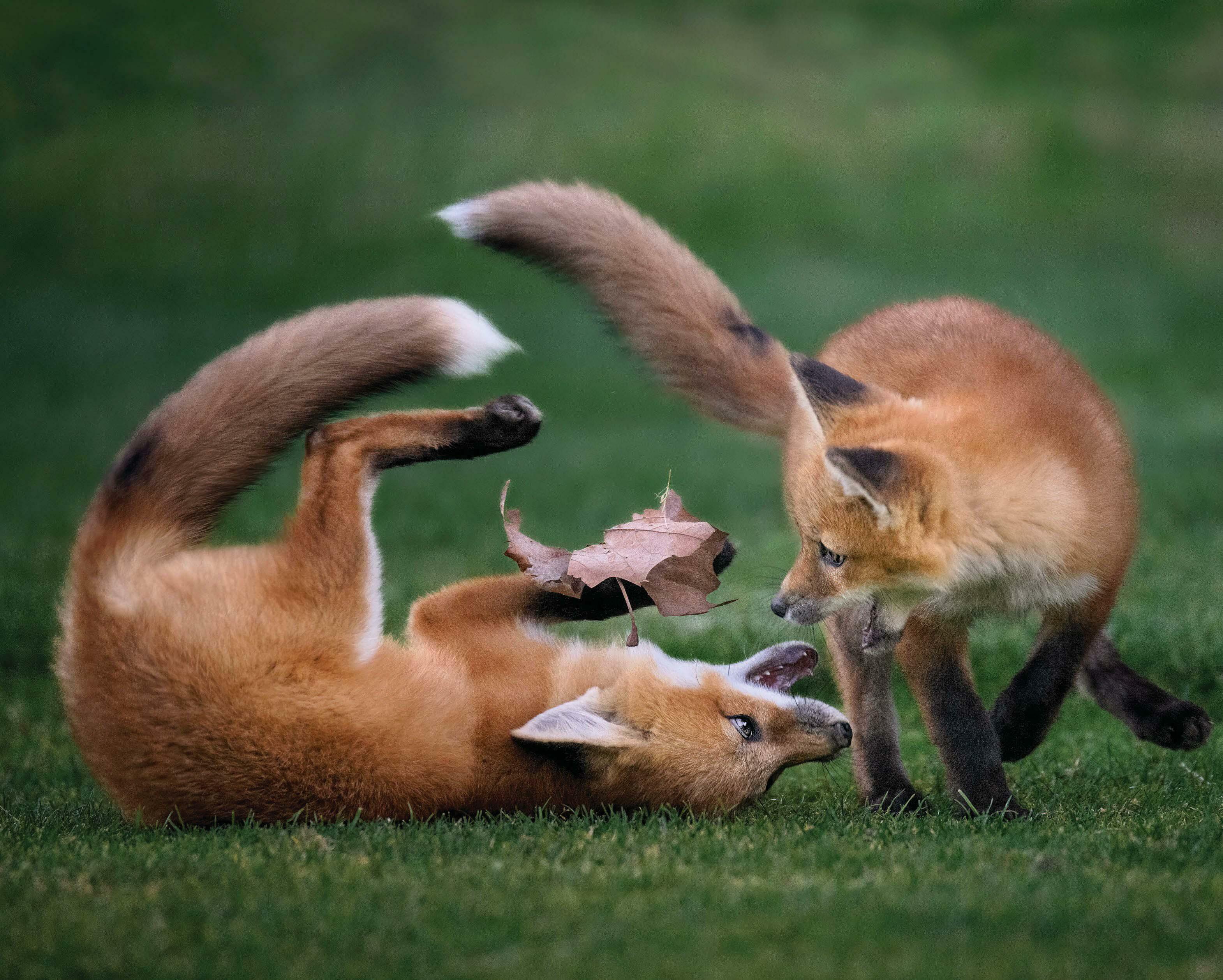
GENERALLY, wildlife sees us before we see it. It’s rare to have the kind of face-to-face encounter that American writer Annie Dillard experienced when she unexpectedly came across a weasel and became locked in its gaze for so long she felt they were like lovers, exchanging brains: ‘The world dismantled and tumbled into that black hole of eyes.’
It seems strange that animals so keen to keep out of sight have such attention-grabbing features. Rabbits often freeze, blending against a bare winter hedge or molehills and rocks, but, once they run, their snowy tails immediately give them away. It is the same with roe deer. Motionless on winter barley or stubble, they merge with the scenery, but, when they scamper off, there go those flashing white beacons that seem to say: ‘Hey, look over here!’ Humorous cartoonist Gary Larson drew on that vein in one of his most familiar works: a deer, standing upright, displays a large bullseye target on its chest. ‘Bummer of a birthmark, Hal,’ his friend observes.
Why do so many prey animals have such obviously flashy appendages? In rabbits and some deer, the short, white, erect tails are known as scuts. Beatrix Potter captured these pristine puffs perfectly as they peeked pertly below the blue jacket and pink cloaks worn by Peter Rabbit and his sisters Flopsy, Mopsy and, of course, Cotton-tail. In Richard Adams’s seminal 1972 novel Watership Down, the scut is explained through a lapine creation myth. Irritated by the rabbits’ fecundity and refusal to cooperate, sun god Frith provides the fox and the weasel with cunning, fierceness—and the desire to hunt rabbits. Seeking out the impudent rabbit leader, by now digging frantically to avoid his new enemies, the deity bestows two gifts upon the visible anatomy. Thus were the rabbit’s back legs made more powerful and his tail ‘grew shining white and flashed like a star’. He had been given both speed and warning.
هذه القصة مأخوذة من طبعة August 07, 2024 من Country Life UK.
ابدأ النسخة التجريبية المجانية من Magzter GOLD لمدة 7 أيام للوصول إلى آلاف القصص المتميزة المنسقة وأكثر من 9,000 مجلة وصحيفة.
بالفعل مشترك ? تسجيل الدخول
هذه القصة مأخوذة من طبعة August 07, 2024 من Country Life UK.
ابدأ النسخة التجريبية المجانية من Magzter GOLD لمدة 7 أيام للوصول إلى آلاف القصص المتميزة المنسقة وأكثر من 9,000 مجلة وصحيفة.
بالفعل مشترك? تسجيل الدخول

Give it some stick
Galloping through the imagination, competitive hobby-horsing is a gymnastic sport on the rise in Britain, discovers Sybilla Hart

Paper escapes
Steven King selects his best travel books of 2024

For love, not money
This year may have marked the end of brag-art’, bought merely to show off one’s wealth. It’s time for a return to looking for connoisseurship, beauty and taste

Mary I: more bruised than bloody
Cast as a sanguinary tyrant, our first Queen Regnant may not deserve her brutal reputation, believes Geoffrey Munn

A love supreme
Art brought together 19th-century Norwich couple Joseph and Emily Stannard, who shared a passion for painting, but their destiny would be dramatically different

Private views
One of the best ways-often the only way-to visit the finest privately owned gardens in the country is by joining an exclusive tour. Non Morris does exactly that

Shhhhhh...
THERE is great delight to be had poring over the front pages of COUNTRY LIFE each week, dreaming of what life would be like in a Scottish castle (so reasonably priced, but do bear in mind the midges) or a townhouse in London’s Eaton Square (worth a king’s ransom, but, oh dear, the traffic) or perhaps that cottage in the Cotswolds (if you don’t mind standing next to Hollywood A-listers in the queue at Daylesford). The estate agent’s particulars will give you details of acreage, proximity to schools and railway stations, but never—no, never—an indication of noise levels.

Mission impossible
Rubble and ruin were all that remained of the early-19th-century Villa Frere and its gardens, planted by the English diplomat John Hookham Frere, until a group of dedicated volunteers came to its rescue. Josephine Tyndale-Biscoe tells the story

When a perfect storm hits
Weather, wars, elections and financial uncertainty all conspired against high-end house sales this year, but there were still some spectacular deals

Give the dog a bone
Man's best friend still needs to eat like its Lupus forebears, believes Jonathan Self, when it's not guarding food, greeting us or destroying our upholstery, of course